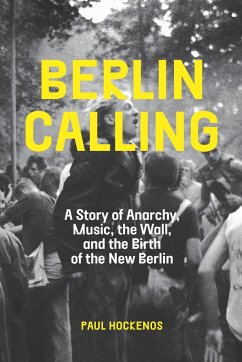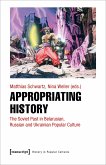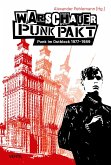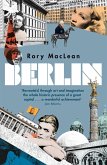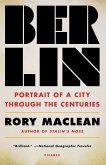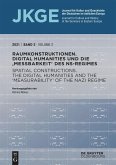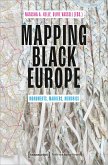An exhilarating journey through the subcultures, occupied squats, and late-night scenes in the anarchic first few years of Berlin after the fall of the wall
Berlin Calling is a gripping account of the 1989 "peaceful revolution" in East Germany that upended communism and the tumultuous years of artistic ferment, political improvisation, and pirate utopias that followed. It's the story of a newly undivided Berlin when protest and punk rock, bohemia and direct democracy, techno and free theater were the order of the day.
In a story stocked with fascinating characters from Berlin's highly politicized undergrounds-including playwright Heiner Müller, cult figure Blixa Bargeld of the industrial band Einstürzende Neubauten, the internationally known French Wall artist Thierry Noir, the American multimedia artist Danielle de Picciotto (founder of Love Parade), and David Bowie during his Ziggy Stardust incarnation-Hockenos argues that the DIY energy and raw urban vibe of the early 1990s shaped the new Berlin and still pulses through the city today.
Just as Mike Davis captured Los Angeles in his City of Quartz, Berlin Calling is a unique account of how Berlin became hip, and of why it continues to attract creative types from the world over.
Berlin Calling is a gripping account of the 1989 "peaceful revolution" in East Germany that upended communism and the tumultuous years of artistic ferment, political improvisation, and pirate utopias that followed. It's the story of a newly undivided Berlin when protest and punk rock, bohemia and direct democracy, techno and free theater were the order of the day.
In a story stocked with fascinating characters from Berlin's highly politicized undergrounds-including playwright Heiner Müller, cult figure Blixa Bargeld of the industrial band Einstürzende Neubauten, the internationally known French Wall artist Thierry Noir, the American multimedia artist Danielle de Picciotto (founder of Love Parade), and David Bowie during his Ziggy Stardust incarnation-Hockenos argues that the DIY energy and raw urban vibe of the early 1990s shaped the new Berlin and still pulses through the city today.
Just as Mike Davis captured Los Angeles in his City of Quartz, Berlin Calling is a unique account of how Berlin became hip, and of why it continues to attract creative types from the world over.
Praise for Paul Hockenos's Berlin Calling:
"Berlin Calling can serve as a Baedeker for those eager to visit Berlin and to experience its still lively spirit for themselves."
-John Rockwell in the New York Times
"The timeliness of Hockenos' intelligent analysis of the effect of a wall on a people and their culture is uncanny. Here, Berlin-based Hockenos uses music as the lens through which to understand the subcultures, countercultures, evolutions, and devolutions that echoed through a West Berlin isolated by a wall..."
-Booklist (starred)
"Hockenos's insightful book captures the history of [Berlin's] subculture... detailing them with sympathy and an analytic eye... Hockenos illustrates this work with photos and posters that stimulate the mind and delight the eye. "
-Library Journal (starred)
"Berlin Calling is an invaluable history of the divided and then reunified city. West Berlin, with its bars that never closed and hard narcotics practically on tap, beckoned and inspired Bowie, Iggy, Brian Eno, and Nick Cave. An untold tale until now is that of the punks, anarchists, dissidents and yes, even neo-Nazis, who rebelled against totalitarian rule in the east. I know of no other book that tells their story. Hockenos has made a vital contribution to the cultural history of post-WWII Europe. A must-read."
-Gillian McCain, co-author of Please Kill Me: The Uncensored Oral History of Punk
"No city has seen more tumult and disruption in the twentieth and twenty-first centuries than Berlin. Paul Hockenos takes a deep insider's look at the cultural forces that have transformed and are transforming Berlin, and act on creative cities, for better and for worse, across the world. A must-read for anyone who is interested in the challenges posed by the reurbanization and gentrification of the world's great cities."
-Richard Florida, University of Toronto, author of Rise of the Creative Class
"An extraordinarily gripping insider's guide to the past and present of this unique, shape-shifting city. Berlin Calling also offers savvy hints as to its intriguing possible futures. This is the book every Berlin aficionado needs to own."
-Frederick Taylor, author of The Berlin Wall
"Can unruly artists change the world? Or do they just provide the soundtrack to history? The Berlin of the 1980s is famous for two things: a wild counterculture and the surprising end of the Cold War. Paul Hockenos, who knows the city inside out, brings them together in a fast-paced, sometimes astonishing story of underground clubs, squatters, and dissidents."
-Brian Ladd, author of The Ghosts of Berlin
Praise for Paul Hockenos's Free to Hate:
"A pioneering and readable account of the rise of the extreme right in contemporary Eastern Europe."
- The Washington Post
"Hockenos provides the best English-language account of how a neofascist underground developed in the self-avowed antifascist state."
- The Progressive
"Berlin Calling can serve as a Baedeker for those eager to visit Berlin and to experience its still lively spirit for themselves."
-John Rockwell in the New York Times
"The timeliness of Hockenos' intelligent analysis of the effect of a wall on a people and their culture is uncanny. Here, Berlin-based Hockenos uses music as the lens through which to understand the subcultures, countercultures, evolutions, and devolutions that echoed through a West Berlin isolated by a wall..."
-Booklist (starred)
"Hockenos's insightful book captures the history of [Berlin's] subculture... detailing them with sympathy and an analytic eye... Hockenos illustrates this work with photos and posters that stimulate the mind and delight the eye. "
-Library Journal (starred)
"Berlin Calling is an invaluable history of the divided and then reunified city. West Berlin, with its bars that never closed and hard narcotics practically on tap, beckoned and inspired Bowie, Iggy, Brian Eno, and Nick Cave. An untold tale until now is that of the punks, anarchists, dissidents and yes, even neo-Nazis, who rebelled against totalitarian rule in the east. I know of no other book that tells their story. Hockenos has made a vital contribution to the cultural history of post-WWII Europe. A must-read."
-Gillian McCain, co-author of Please Kill Me: The Uncensored Oral History of Punk
"No city has seen more tumult and disruption in the twentieth and twenty-first centuries than Berlin. Paul Hockenos takes a deep insider's look at the cultural forces that have transformed and are transforming Berlin, and act on creative cities, for better and for worse, across the world. A must-read for anyone who is interested in the challenges posed by the reurbanization and gentrification of the world's great cities."
-Richard Florida, University of Toronto, author of Rise of the Creative Class
"An extraordinarily gripping insider's guide to the past and present of this unique, shape-shifting city. Berlin Calling also offers savvy hints as to its intriguing possible futures. This is the book every Berlin aficionado needs to own."
-Frederick Taylor, author of The Berlin Wall
"Can unruly artists change the world? Or do they just provide the soundtrack to history? The Berlin of the 1980s is famous for two things: a wild counterculture and the surprising end of the Cold War. Paul Hockenos, who knows the city inside out, brings them together in a fast-paced, sometimes astonishing story of underground clubs, squatters, and dissidents."
-Brian Ladd, author of The Ghosts of Berlin
Praise for Paul Hockenos's Free to Hate:
"A pioneering and readable account of the rise of the extreme right in contemporary Eastern Europe."
- The Washington Post
"Hockenos provides the best English-language account of how a neofascist underground developed in the self-avowed antifascist state."
- The Progressive

